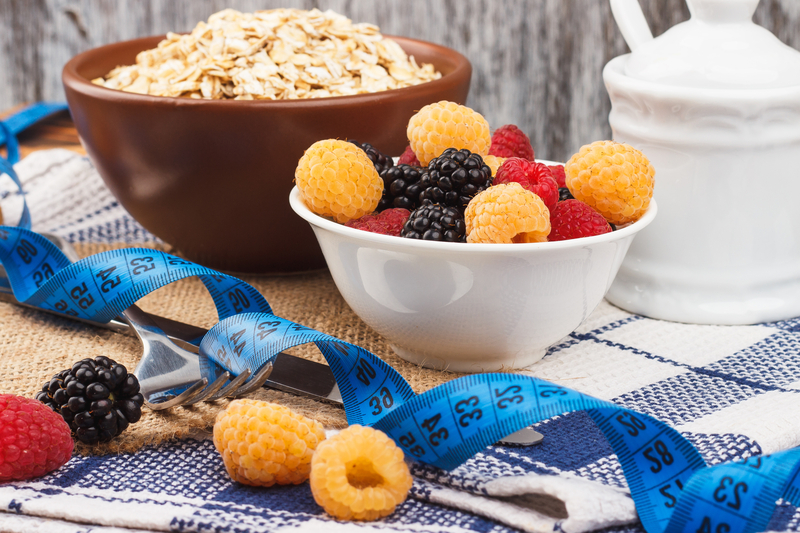How Many Calories Should I Eat a Day to Lose Weight?

While there are many different aspects of losing weight, when it comes right down to it, to lose weight, you have to eat less calories than you burn. So, if you’ve packed on a few extra pounds that you’d like to get rid of, how many calories you consume per day is a big part of the equation.
How many calories you need varies depending on several factors, including but not limited to your age, metabolism, current weight, goal weight, frame size, height, activity levels, and lifestyle. In general, the recommendation is 2,000 (for sedentary men) to 3,000 (for active men) per day, and 1,600 (for sedentary women) to 2,400 (for active women) calories per day.
Other factors that can influence how many calories include hormones (such as thyroid), medications (e.g., glucocorticoids), and wellness.
What Are Calories? How Do They Work?
Simply put, calories are energy. It’s the energy that fuels everything you do: from thinking to sleeping, exercise to working, or fidgeting to waiting in line at the grocery store… Your body is a calorie-burning machine.
Regardless of whether your calories are coming from proteins, carbohydrates, or fats, the energy from the foods you eat is either used to propel your activities or stored as body fat to use later. Of course, if you want to lose weight, that means you have to either reduce calorie consumption or increase physical activity to tap into that stored fat.
Fun calorie facts:
- About 20% of the energy we consume is used to fuel brain metabolism.
- The largest calorie cost goes to basal metabolic rate (or the calories the body expends on blood circulation, digestion, breathing, and other functions when in a resting state).
- We also use calories to stand straight and move around. Our bodies also need to burn more energy in cold environments than warm ones, as we increase metabolism to maintain body heat.
How to Balance Calorie Intake?
Weight loss, weight maintenance, and even weight gain is all a balancing act. Eat more than you burn, and you’ll gain weight. Eat the same amounts, and you’ll maintain. And if you eat less or exercise more (or better yet, a combination of the two), you’ll drop weight.
“How many calories should I eat to lose weight?” In general, experts recommend creating a calorie deficit of between 500 and 1,000 calories per day to lose 1 to 2 pounds (.5 to 1 kg) per week. This, however, is where things can get complicated. You see, as you lose weight, your body composition changes. And what you eat and what type of exercise you do can have a big impact on the type of weight you lose.
For example, if you only focus on weight loss, you may be losing more water weight and muscle mass than body fat. And as you continue losing weight, you’ll need to further cut calories to continue losing weight.
This can be why weight loss starts out quickly, yet after several weeks or months, the body plateaus—making further changes necessary to drop more weight.
It can be tempting to drop calories drastically to lose weight more rapidly. Yet for long-term success, losing a pound a week (by cutting or burning an additional 500 calories per day) appears to be most effective. As dropping calories too low can lead to intense hunger and drive people back to their old eating habits. What’s more, eating too little could lead to nutrient deficiencies, suppress the immune system, and slow metabolism.
How to Cut Calories in a Healthy Way?
Cutting calories doesn’t have to be complicated. For example, you can replace high-calorie foods with lower-calorie options. You can reduce portion sizes. For those who are just starting out, simply giving up a high-calorie food or drink a day may lead to weight loss. For example, if you typically start the day with a full-sugar, creamy latte (230 calories), even switching to black coffee with a tablespoon of cream and stevia drops (29 calories) can help shift the equation in your favor.
Other simple swaps include:
- Swapping out a soda with unsweetened ice tea or sparkling water (saving 140 calories)
- Exchanging a bowl of ice cream with a bowl of berries (to reduce calories in half while boosting the nutrition value)
- Snacking on air-popped popcorn instead of fried chips (for 15 calories vs 150, while being just as filling)
- Loading up to half of your plate with vegetables instead of sticking to just “meat and potatoes”
In addition, for more long-term success, other lifestyle changes can help you lose weight and keep it off. These include:
- Consuming more protein, which can curb appetite and boost metabolic rate.
- Avoiding sugary drinks—not just soft drinks but fruit juices, lattes, chocolate milk, etc.
- Drinking more water, especially right before meals.
- Drinking caffeinated beverages like coffee and green tea to slightly boost metabolism.
- Exercising regularly—including lifting weights to build muscle and support a strong metabolism.
- Reducing intake of refined carbohydrates and increasing intake of fiber-rich foods like vegetables, fruits, legumes, and whole grains.
While calories do count, you don’t necessarily need to count every calorie. There’s a handy way to control portion sizes that makes it much easier to eat the right amount for you.
How Many Calories Should I Eat?
The number of calories you need varies widely based on your gender, age, current weight, activity level, and metabolic health. If you want to lose weight, start by reducing calorie intake or increasing calorie burn by at least 250 to 500 calories per day. There are numerous online calculators that can provide a better estimate of how many calories you need based on your age, weight, and activity level. (Just type calorie calculator in your favorite search engine to start.)
Whatever you do, though, avoid starving yourself as this will likely backfire and lead to greater weight gain in the long run. While surrounding yourself with temptation can be difficult on a diet, so can banning foods as that can lead to cravings and bingeing. If you have a favorite treat, schedule times away from home to indulge with a smaller portion.
Start with some simple dietary and lifestyle changes and build from there.




 7 Signs Your Body is Seriously Low on Collagen (not just wrinkles)
7 Signs Your Body is Seriously Low on Collagen (not just wrinkles) Health Expert: "Turmeric Doesn't Work (unless...)"
Health Expert: "Turmeric Doesn't Work (unless...)" 3 Warning Signs Your Probiotic Supplement is a Total Waste
3 Warning Signs Your Probiotic Supplement is a Total Waste

